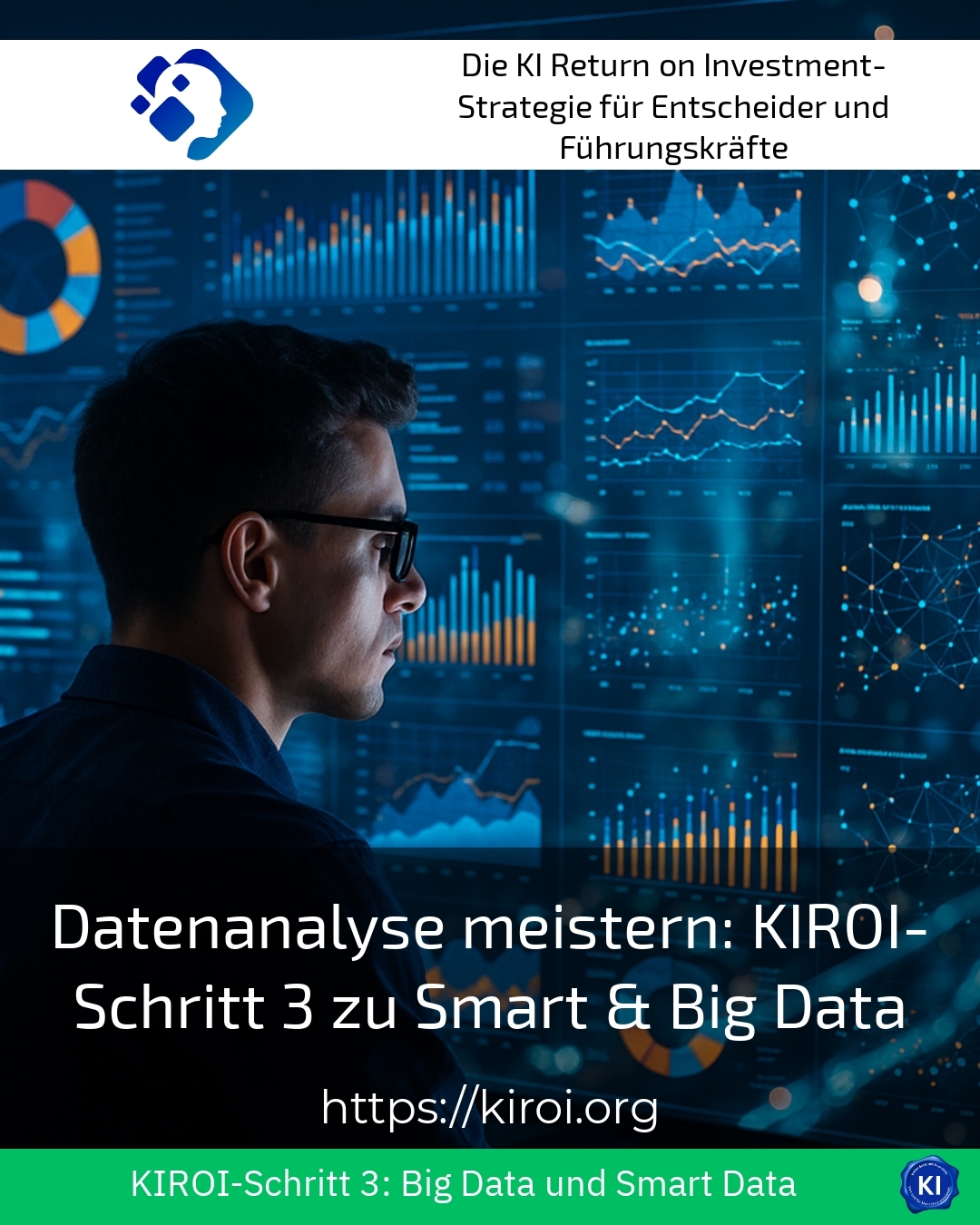Data analysis as the key to gaining knowledge
Data analysis plays a central role in current smart & big data projects in order to gain relevant insights from extensive data sets. It helps companies to recognise trends and make more informed decisions. Data analysis is not a singular process, but a sequential process in which data is first carefully selected, then cleansed and transformed before it can be analysed.
During a coaching session, we often find that employees from different industries come to us with the question of how they can master the complexity of large amounts of data. Clients often report that they have difficulty correctly assessing the relevance of the data and finding the right analysis methods for their project.
Data preparation as the foundation for successful analyses
It is important to prepare the data for use even before the actual analysis. Thorough data cleansing is particularly time-consuming. Here, irrelevant or incorrect information is sorted out, for example spam data or incorrect entries. This is followed by data transformation, in which heterogeneous data formats are standardised in order to make them comparable and analysable.
An example from the logistics industry shows how transport times can be better predicted through careful data cleansing and transformation. This allowed routes to be planned more efficiently and costs to be saved.
In healthcare, one client reported that consolidating patient data from different sources prior to analysis helped her to recognise patterns in treatment success rates that were previously hidden.
The financial sector also uses these steps by processing transaction data in order to recognise and react to fraudulent activities at an early stage.
Numerous steps to mastering data analysis
Data analysis involves more than just analysing individual figures. Data preparation is followed by the actual analysis, often supported by machine learning algorithms. These methods make it possible to discover patterns, correlations or anomalies in the data volume that are barely recognisable in a manual analysis.
In the manufacturing industry, analysing machine data has led to more precise planning of maintenance work and reduced downtimes, which has cut production costs.
In marketing, data-based findings often provide new impetus as to how campaigns can be customised more specifically to certain customer segments. For example, individual projects that benefited from data analytics support recorded a significant improvement in customer satisfaction.
The retail sector uses data analysis to better understand purchasing behaviour and to position product ranges accordingly. Here, too, accompanied projects have shown how valuable optimised data analysis can be in expanding market share.
KIROI BEST PRACTICE at company XYZ (name changed due to NDA contract)
As part of a smart data project, KIROI supported a company that collects large amounts of sensor data from production. Through targeted data cleansing and subsequent analysis, inefficient production steps were identified and optimised. The project team received continuous impetus and was supported in the selection of suitable tools so that they could carry out further analyses independently.
KIROI BEST PRACTICE at ABC (name changed due to NDA contract)
A big data project helped a service provider that manages marketing campaigns for various industries. KIROI supported the team in systematically segmenting large amounts of customer data. The insights gained were used to adapt the content strategy in a targeted manner, which improved customer loyalty.
KIROI BEST PRACTICE at DEF (name changed due to NDA contract)
In a healthcare project, KIROI supported the networking of various data sources. The aim was to develop early warning systems for patients at risk using data analysis methods. The project received input from KIROI on the selection of analysis algorithms and was supported in the interpretation of the results.
Guidance and support as a success factor
Data analysis does not have to take place in isolation. Practical experience shows that support from experienced coaches brings numerous advantages. Suitable methods and tools can be used in a targeted manner, while at the same time the professional interpretation of the results is promoted. This increases acceptance within the team and makes the implementation of data-based measures more successful.
The diversity of data formats, the speed at which data is generated and the huge volumes of data - the very challenges that smart & big data projects entail - must be taken into account. Sound data analysis helps to meet these challenges by providing important answers that can be used to optimise processes and strategies.
My analysis
At the centre is the realisation that data analysis is a methodical, multi-stage process that is characterised by preparation, transformation and targeted evaluation. Projects benefit from support that takes into account not only technical aspects but also the context of the application and provides impetus for practicable solutions. This can be seen in a wide range of industries, from production and marketing to healthcare, which use data analysis to tackle their challenges and further develop their business models.
Further links from the text above:
[1] How knowledge is created from big data in 7 steps
[4] What is big data analysis?
[7] Big Data: Definition, Analyses. Technologies, Tools
For more information and if you have any questions, please contact Contact us on the topic or read more blog posts on the topic Artificial Intelligence Blog here.















